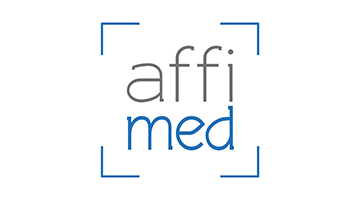Affimed Announces Updated AFM13 Clinical Data Presentation at ASH

Heidelberg, Germany, December 7, 2020 – Affimed N.V. (Nasdaq: AFMD), a clinical-stage immuno-oncology company committed to giving patients back their innate ability to fight cancer, today announced the presentation of a clinical data set on AFM13 at the 62nd American Society of Hematology Annual Meeting and Exposition. Dr. Ahmed Sawas, Assistant Professor of Medicine at Columbia University College of Physicians and Surgeons and the New York-Presbyterian Hospital, and principal investigator presented the updated results of a phase 1b/2a study in patients with CD30-expressing lymphoma with cutaneous involvement. AFM13 is a bispecific tetravalent Innate Cell Engager (ICE®) targeting CD30 on tumor cells and CD16A on NK cells and macrophages.
2971: Clinical and Biological Evaluation of the Novel CD30/CD16A Tetravalent Bispecific Antibody (AFM13) in Relapsed or Refractory CD30-Positive Lymphoma with Cutaneous Presentation: A Biomarker Phase Ib/IIa Study (NCT03192202)
- AFM13 monotherapy was well tolerated and reached an Objective Response Rate of 42 percent among heavily pretreated patients with R/R CD30-positive lymphoma with cutaneous presentation
- Immunological analyses revealed that innate cell engagers modulate NK and T cell populations in peripheral blood and tumors
This updated analysis of the AFM13 monotherapy study in patients with relapsed or refractory CD30-positive lymphoma with cutaneous presentation showed an Objective Response Rate (ORR) of 42 percent (6/14) and demonstrated clinical activity after brentuximab vedotin failure in two of four patients. Flow cytometry of peripheral blood revealed decreased circulating NK cell numbers during therapy and tumor biopsies of responders exhibited an increased pre-therapy CD56+ NK cell infiltration versus non-responders. Granzyme B expression was detected in responders, indicating NK cell cytotoxicity. Together, these data suggest that AFM13 may initiate NK cell tumor infiltration and recruit and engage NK cells. In addition, AFM13 was well tolerated. “The therapeutic need for this heavily pretreated patient group is extremely high. We are therefore happy to see that AFM13 monotherapy was well tolerated and demonstrated a promising ORR,” commented Dr. Ahmed Sawas. “Our biological evaluation is the first to demonstrate that innate cell engagers modulate NK cell populations in patient peripheral blood and tumors, which seems to be associated with patient benefit.”
The company is currently enrolling patients into a registration-directed study of AFM13 for CD30-positive relapsed/refractory peripheral T cell lymphoma.